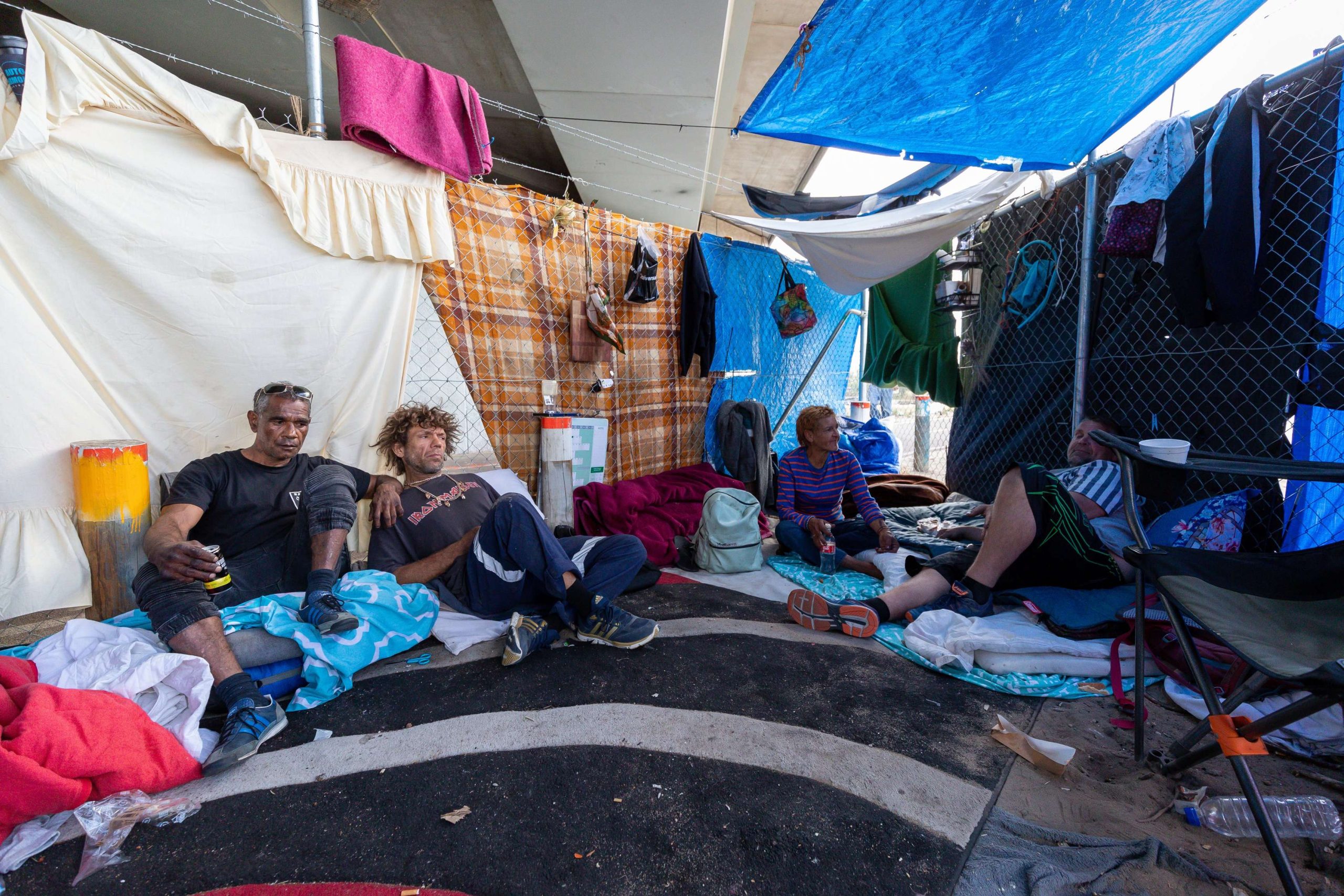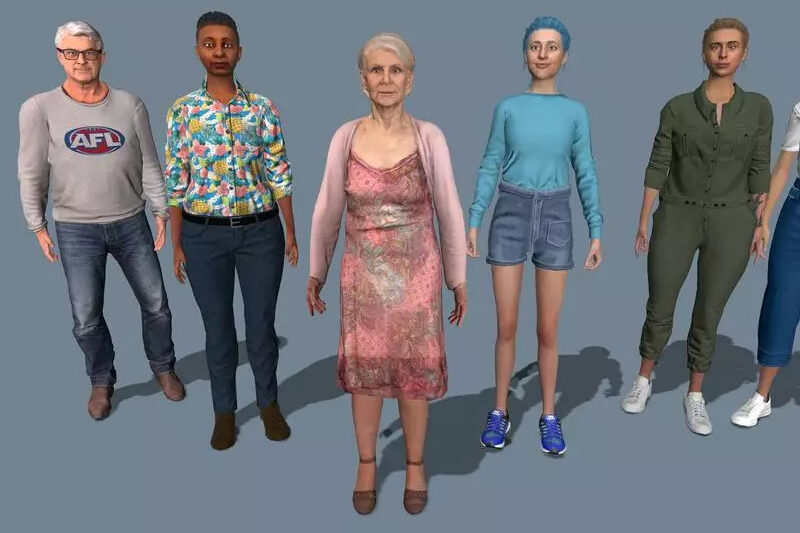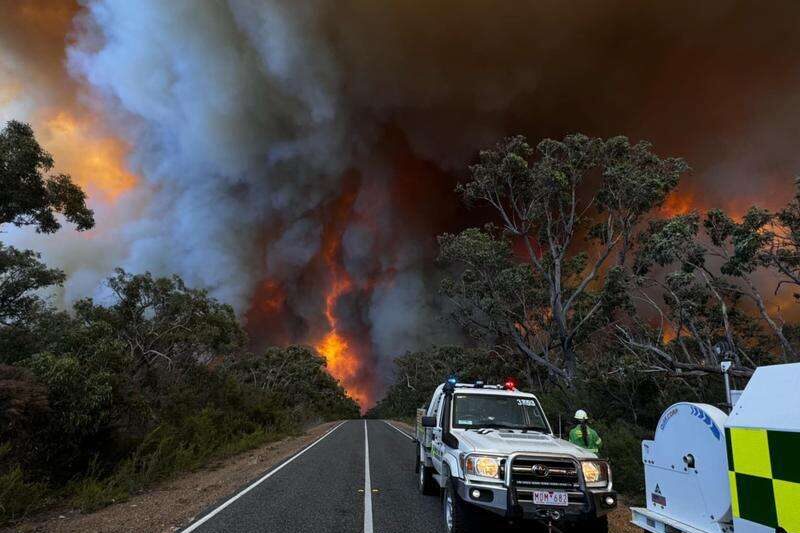
FRONTLINE organisations who help homeless Indigenous people are stretched to breaking point.
As the housing crisis continues to bite, Aboriginal and Torres Strait Islander people across the country are experiencing homelessness at disproportionately higher rates than other Australians.
While Indigenous people make up about 3.2 per cent of the Australian population, they made up around 20 per cent of the estimated number of people experiencing homelessness on Census night in 2021 and more than one quarter (29 per cent) of the clients assisted by specialist homelessness services in 2022–23.
According to data analysed by the Australian Institute of Health and Welfare, around 74,700 Indigenous people received support from specialist homelessness services across the nation in 2022–23.
In Victoria, the figures revealed a record rate of Aboriginal people seeking help for homelessness as frontline services hit breaking point.
Darren Smith, Aboriginal Housing and Homelessness Forum chair and Aboriginal Housing Victoria chief executive, said addressing the specific needs of First Nations people was fundamental to combating disadvantage.
“Homelessness among Aboriginal Victorians has hit a record high as rising costs and soaring rents hit Aboriginal communities disproportionately hard,” he said.
“Fundamentally, what it means is that we’ve got more clients in incredibly vulnerable positions because they’re on the streets, they’re sleeping on the riverbanks or couch surfing.”
Extreme weather events, like cyclones, bushfires and heatwaves, are even more difficult to manage without secure and safe housing.
“It is so difficult to actually understand, as a person who has a house, what it is like to be in those kind of environments,” Mr Smith said.
“Can you imagine what it’s like up in Cairns if you actually don’t have a roof over your head or a place to go back to?
“It’s unimaginable, really.”
Since 2011-12 the number of Indigenous people receiving homelessness services support has been increasing at an average rate of five per cent per year.
Federal Housing Minister Julie Collins said the number of Indigenous people who are facing housing challenges is completely unacceptable.
She said the government had committed $200 million from the returns of the Housing Australia Future Fund for the repair, maintenance and improvements of housing in Indigenous communities.
Severe overcrowding as a form of homelessness is particularly prevalent, particularly in remote areas, with Indigenous people about three times as likely to live in overcrowded conditions than non-Indigenous Australians.
The rapid growth was a “damning indictment on chronic underinvestment”, Mr Smith said.
Among the people across Victoria accessing homelessness services, the rate of long-term homelessness among Aboriginal people is sitting at 35 per cent, he said.
In 2022, Aboriginal Housing Victoria published Mana-na woorn-tyeen maar-takoort (‘every Aboriginal person has a home’ in Gunditjmara dialects), a blueprint for an Aboriginal-specific homelessness system in Victoria.
The framework calls for targeted state and federal government investment in Indigenous community-controlled organisations.
Council to Homeless Persons chief executive Deborah Di Natale said Victoria cannot end homelessness without such a dedicated and culturally appropriate response for Aboriginal communities.
Ms Collins said the federal government’s new $2 billion Social Housing Accelerator to deliver about 4000 new social homes, showed Australia had made commitments to Indigenous housing.
13YARN 13 92 76
Aboriginal Counselling Services 0410 539 905
1800 RESPECT (1800 737 732)
Lifeline 13 11 14
beyondblue 1300 22 4636
Who can be trusted?
In a world of spin and confusion, there’s never been a more important time to support independent journalism in Canberra.
If you trust our work online and want to enforce the power of independent voices, I invite you to make a small contribution.
Every dollar of support is invested back into our journalism to help keep citynews.com.au strong and free.
Thank you,
Ian Meikle, editor





Leave a Reply